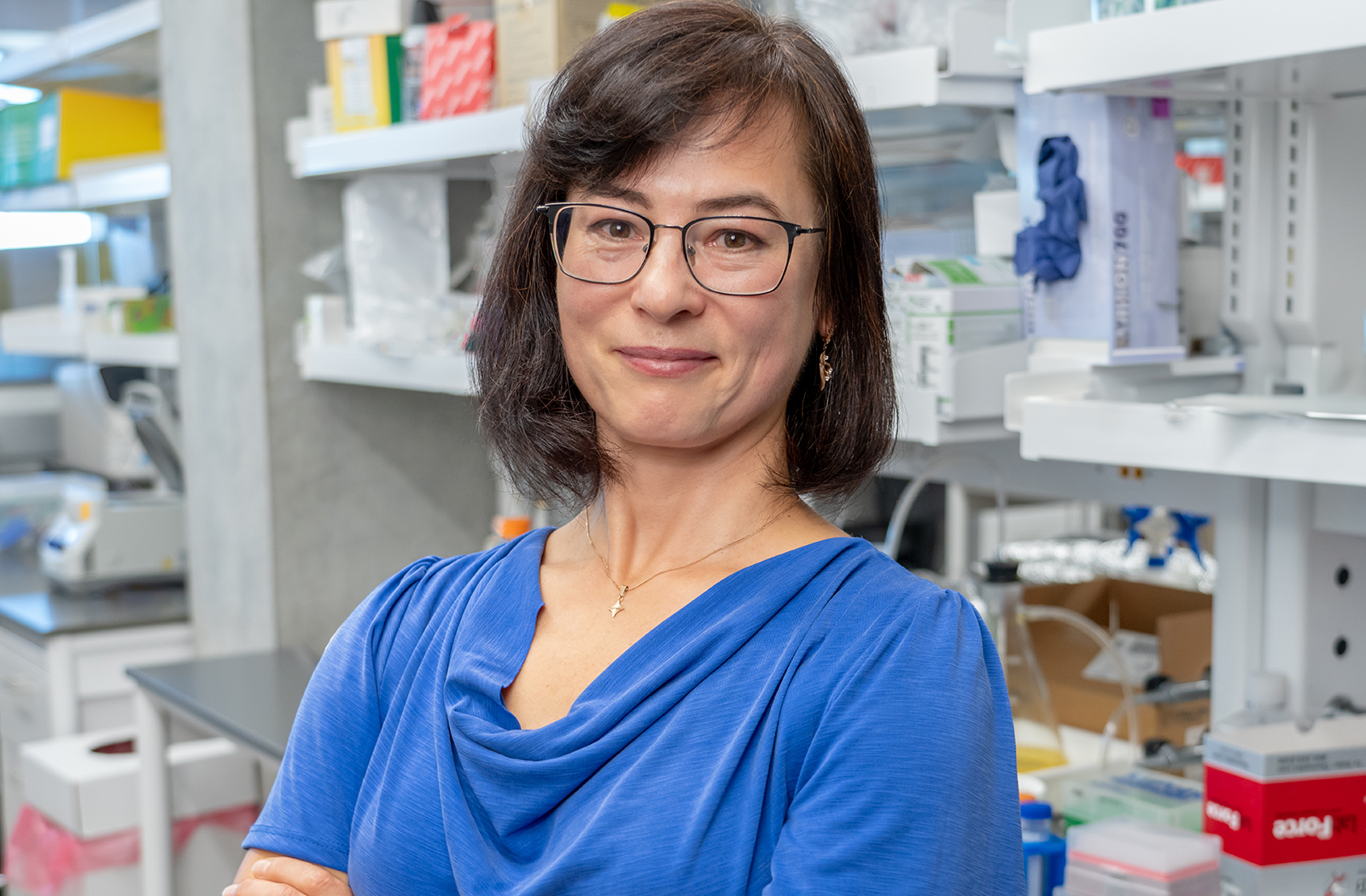
Women in Medicine and Science - Tanya Kalin, MD, PhD

Tanya Kalin, MD, PhD, professor of Child Health and Internal Medicine at the University of Arizona College of Medicine – Phoenix, seeks to move her research findings into clinical trials to evaluate treatments for metastatic lung cancer and chronic lung diseases in children and adults.
“For me, success is being able to implement our discoveries in the lab to improve the efficacy of patients' treatment in clinic and to make sure that it will reach the bedside as soon as possible,” Dr. Kalin said. “Whatever we are doing, the final goal is to move it into clinical trials and hopefully to develop new treatments based on our research.”
Dr. Kalin was born in the Ukraine and graduated from Pirogov’s National Medical school in Moscow, earning her MD and PhD. She completed her fellowship programs at the University of Chicago and University of Illinois at Chicago. Her fellowship research was in the cancer field focusing on novel molecules on the tumor cells that prevented activation of the immune cells.
She moved to Cincinnati Children’s Hospital to start her independent career as an assistant professor, where she founded and directed her namesake Kalin Research Lab and became a full professor. Last year, she moved her laboratory to Phoenix, Arizona, to join the Phoenix Children’s Research Institute at the University of Arizona College of Medicine – Phoenix.
Over the years, Dr. Kalin’s view of success changed. Before, she viewed success as being assessed by the number of impactful publications made. Now, she views it as implementing the discoveries she finds into real-life patient treatments.
Dr. Kalin specializes in lung health and believes the most important issue of her field is understanding how normal lung tissue repairs to prevent the development of fibrosis and other chronic lung diseases.
“After the COVID-19 pandemic, a lot of people ended up with impaired lungs, having diminished lung function and severely compromised peripheral blood oxygenation,” Dr. Kalin said. “We want to understand why some patients recovered without any scarring, while other patients developed complications.”
Early in her research career, the field of cancer experienced a breakthrough with the discovery of checkpoint inhibitors, which have become a crucial therapy in cancer treatment by reactivating the immune system.
“This is a huge breakthrough in the cancer field, and that’s helped a lot of patients survive,” Dr. Kalin said.
“We can support our treatments by adjusting the response of our immune system. During the acute inflammation, the immune system is activated,” Dr. Kalin said. “When recovery happens, the immune system has to shut down. When this is not occurring, the injury continues and is driven by the immune system.”
Dr. Kalin believes people should not be limited by abilities or gender. In the present day, people have the possibilities to learn what they want and get the education they need and deserve to pursue their dreams.
“We need to encourage young girls to go into STEM, medical schools and research because with our creativity as women, we can bring more ideas and implement them into new treatments to move the research and clinical field forward,” Dr. Kalin said.
Despite working in a male-dominated field, Dr. Kalin said she never felt isolated or alone. She encourages women to understand they can have the same education and knowledge to bring their expertise to the table.
“I worked with everyone depending on what skill or expertise my research needed,” Dr. Kalin said. “I believe combining different expertise not dependent on gender is the most important thing to achieve progress.”
Read more Women to Watch in Medicine and Science profiles
About the College
Founded in 2007, the University of Arizona College of Medicine – Phoenix inspires and trains exemplary physicians, scientists and leaders to advance its core missions in education, research, clinical care and service to communities across Arizona. The college’s strength lies in our collaborations and partnerships with clinical affiliates, community organizations and industry sponsors. With our primary affiliate, Banner Health, we are recognized as the premier academic medical center in Phoenix. As an anchor institution of the Phoenix Bioscience Core, the college is home to signature research programs in neurosciences, cardiopulmonary diseases, immunology, informatics and metabolism. These focus areas uniquely position us to drive biomedical research and bolster economic development in the region.
As an urban institution with strong roots in rural and tribal health, the college has graduated more than 1,000 physicians and matriculates 130 students each year. Greater than 60% of matriculating students are from Arizona and many continue training at our GME sponsored residency programs, ultimately pursuing local academic and community-based opportunities. While our traditional four-year program continues to thrive, we will launch our recently approved accelerated three-year medical student curriculum with exclusive focus on primary care. This program is designed to further enhance workforce retention needs across Arizona.
The college has embarked on our strategic plan for 2025 to 2030. Learn more.